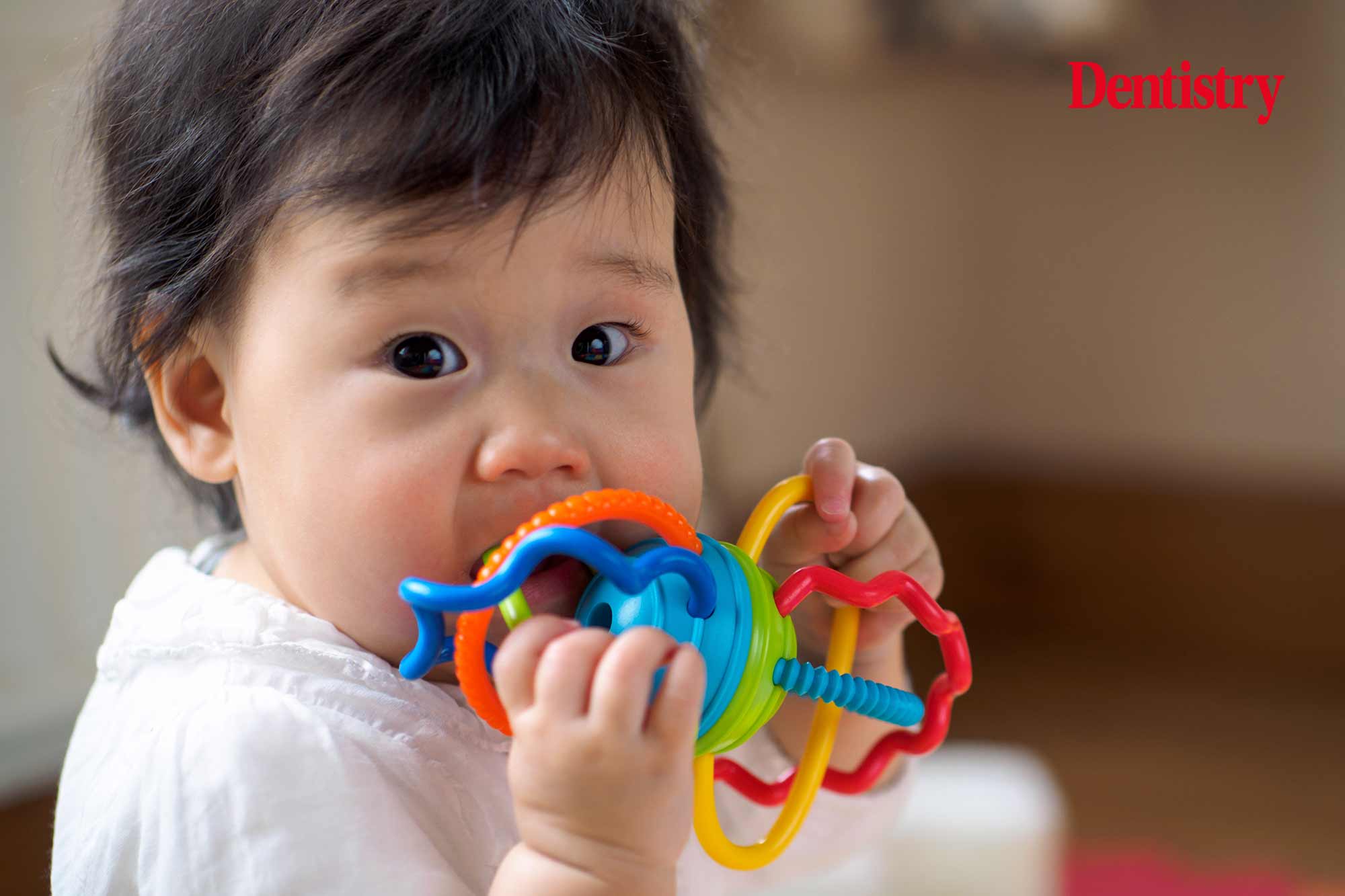 Maria Papavergos explains how to better inform patients on the dos and don’ts when it comes to introducing foods to babies.
Maria Papavergos explains how to better inform patients on the dos and don’ts when it comes to introducing foods to babies.
It’s a minefield out there. Mixed health messages, misinformation, misleading marketing. It’s no wonder well-meaning parents often make choices that cost their children’s oral health. So what should we be telling our patients?
Teeth usually appear around six months old, which coincides with WHO guidance for weaning. Let’s try to make sure sugar is not the first food or flavour that meets little mouths. It is not only the potential for dental caries, which is the number one reason for hospital admissions amongst young children.
But the cultivation of a preference for sweet tastes that carries lifelong oral and general health risks.
When it comes to first foods, start with vegetables. Mashed veg offers an easy and nutritious start and by exposing children early to lots of different flavours, it may help to avoid future fussy eaters. Plant diversity also paves the way to a healthy oral and gut microbiome, so it is important to encourage parents to be adventurous.
Experiment with strong flavours
There is some evidence to suggest that by eating more vegetables, we are cultivating our oral microbes to improve our liking of it. Children may surprise you, so don’t let parental preferences prevent experimentation with strong flavours.
We should encourage parents to choose whole fruit, instead of blending it, to reduce caries risk. Babies love to use their mouths, so it’s never too early to get them to start biting on bananas, pear slices or soft raspberries. Gums are surprisingly good for chewing, so foods with a bit of bite should not be avoided and finger foods should be introduced early.
Chewing is also linked to relaxation and stimulation of the parasympathetic nervous system, helping to calm the baby too.
Beware of packaged foods, especially baby pouches. The recent BDA press release highlights the ‘obscene levels of sugar’ alongside the array of disingenuous marketing messages and labelling. Sucking directly from the pouch puts baby teeth at high risk of dental erosion and caries. We are in a position to help educate on the damaging potential of processed fruit and help navigate parents to make healthy choices amongst a plethora of misleading claims.
Start lifelong habits
You might think it goes without saying that baby teeth need to be brushed. But it is worryingly not commonplace, so it is important to state the obvious!
First teeth are a reminder to start good lifelong habits, brushing twice a day and reminding parents not to leave their baby with a bottle of milk (or juice) at night. Brushing can become a fun part of the daily routine.
The first sign of baby teeth can be a little sore and some simple reassurance can go a long way. Babies may be a little more irritable, have a disrupted sleep pattern and need more comfort.
This is normal and, thankfully, usually short lived. It is important for patents to know what to expect, to alleviate their concerns and discourage them to rush into medicating their baby. Teething powders and gels often contain ingredients that are harsh on a baby’s delicate mouth and microbiome.
My top tips are for parents to invest in some good quality soft tethers (like silicone) that won’t damage delicate gums but have a chewable texture. Choosing foods with softer textures, like slices of cold melon, will benefit baby as a relieving, healthy snack.
Considering probiotic foods that support baby’s oral microbiome, such as live, unsweetened Greek yoghurt, not only offers relief with its cold, smooth texture but early evidence suggests that probiotics can reduce mouth ulcer severity and associated pain.
The dental profession can be part of the joined up thinking from health professionals, with widespread education as well as government support, to help ensure that first teeth are healthy teeth and they stay that way for life.
Follow Dentistry.co.uk on Instagram to keep up with all the latest dental news and trends.


